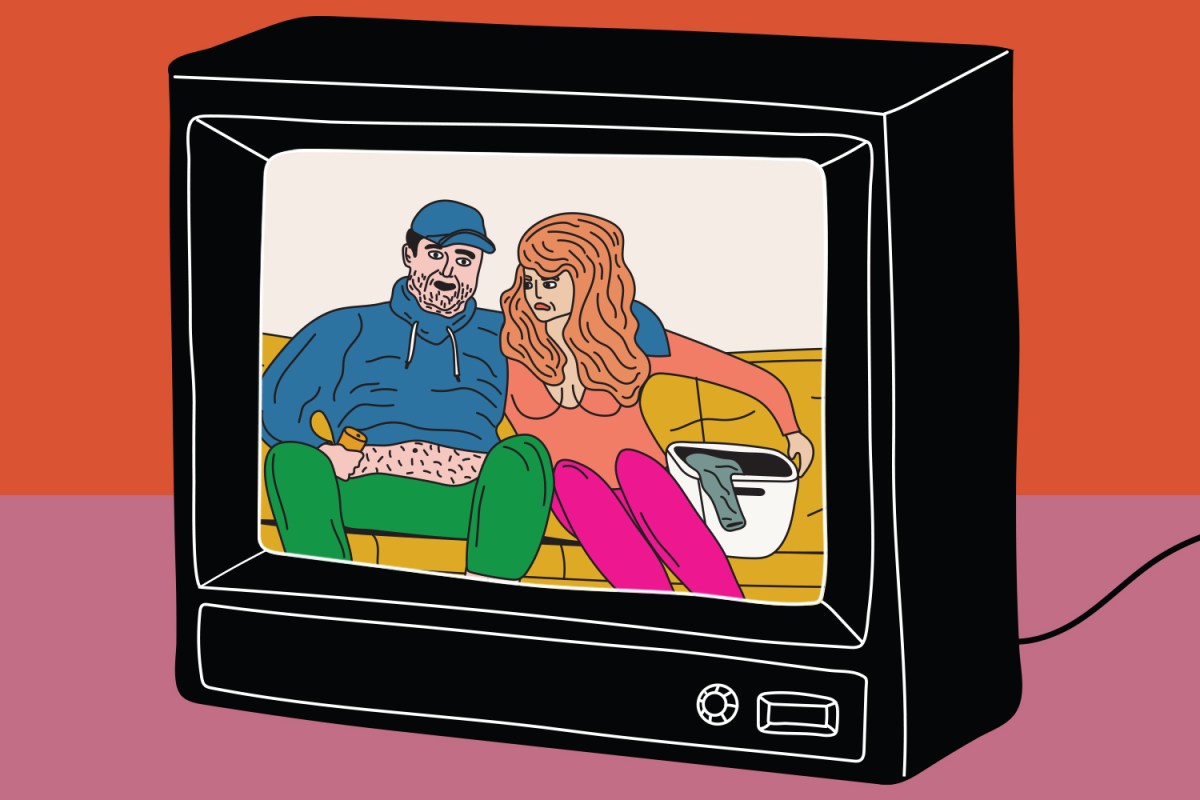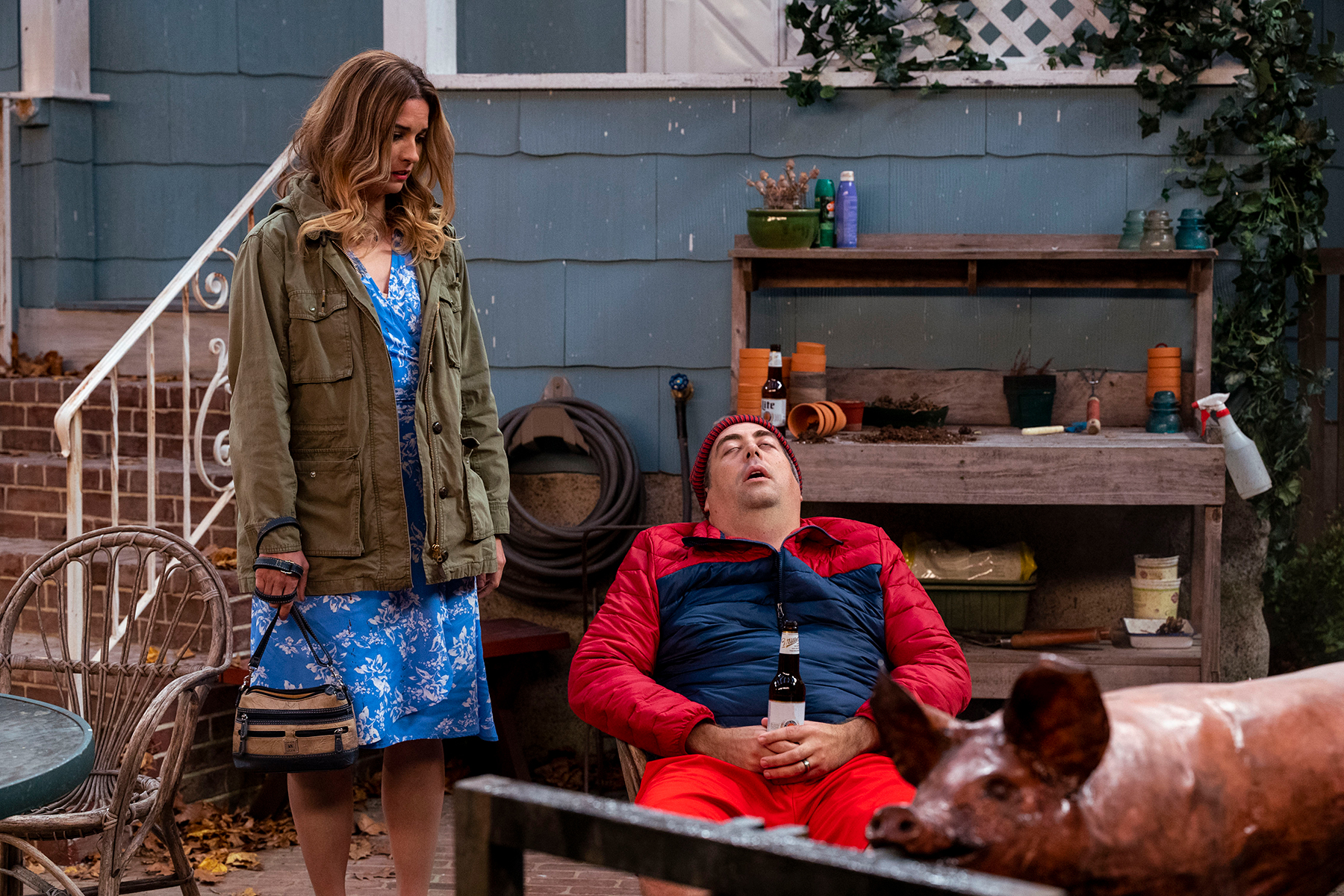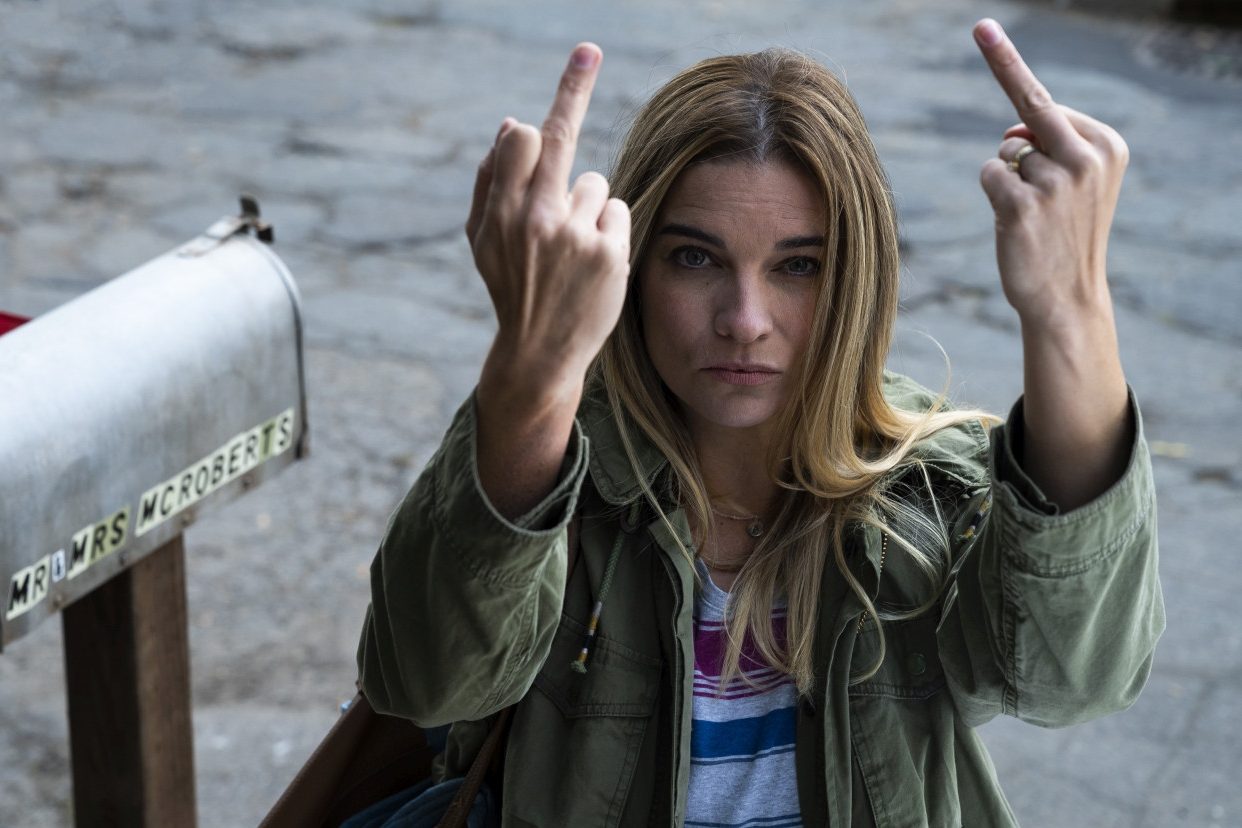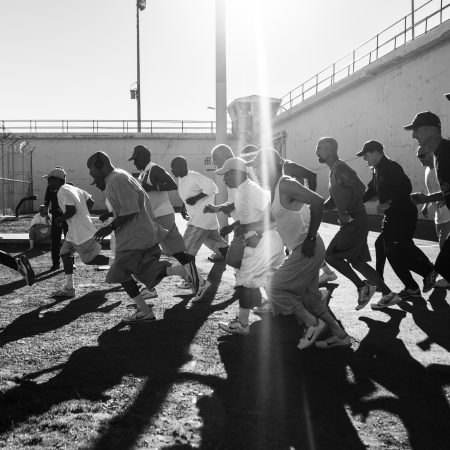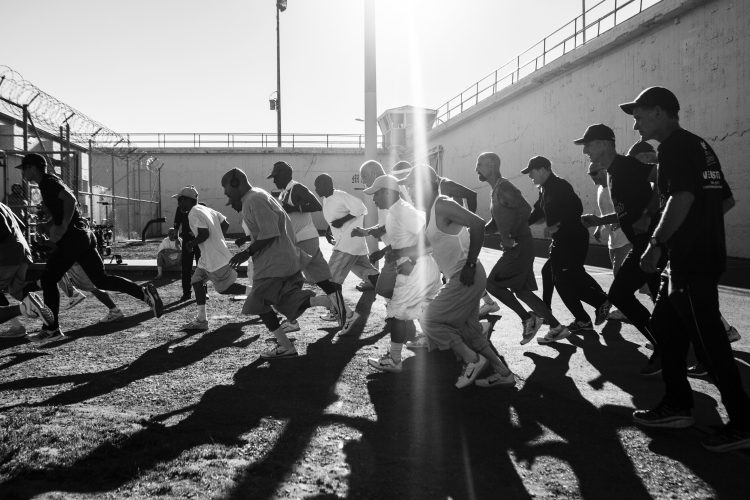Like many millennials growing up in the 1990s, my longstanding opinions about sex and marriage were largely informed — and misinformed — by TV shows and movies like Home Improvement, Friends and Sex and the City.
Within the world of these shows, sex — marital or otherwise — was generally portrayed as an ongoing tug-of-war between a man and woman: a nonstop source of frustration and miscommunication that often painted the woman as a cold, sex-averse shrew who would sooner have an affair than indulge her man-child husband with marital relations. Sitcoms like Friends may have occasionally managed to portray a married couple with some semblance of a sex life, but it was often in need of “spicing up” via some sort of goofy gag (remember when Monica buys Chandler “shark porn?”). Ultimately, the overarching narrative about marriage as seen on TV was that it was an archaic, sexless institution that inevitably led to divorce.
Films weren’t doing a much better job back then, either. While iconic rom-coms like Knocked Up, Four Weddings and A Funeral and So I Married An Axe Murderer sometimes took a kinder stance towards matrimony, jokes too often revolved around secrets, communication follies and even actual murder that a couple was somehow expected to overcome. A lot of ’80s babies got their first major movie scare from films like Jurassic Park or Starship Troopers; I remember Steel Magnolias striking the fear of god into my heart. If marriage wasn’t about the death of one’s sex life, it seemed, it was about actual death.
Like many Bukowski-obsessed wannabe baby-boy guys in their 20s, I decided marriage wasn’t for me. Who the hell would ever subject themselves to years of fighting about the lack of intimacy in a relationship? All I wanted to do was hang out with my gaggle of hard-boiled-egg-shaped friends and talk about cool stuff like leather and guitar music. Growing up with The Simpsons, King of the Hill and Family Guy taught me that I, as a man, was the main character for the omnipresent audience of fans I thought I had in my life. I didn’t want a Marge Simpson to undermine and derail my harebrained schemes. I didn’t want a Jill Taylor to pull me out of my poker game to nag me about “lady issues.”
Kate Balestrieri, PsyD, a licensed certified sex therapist, intimacy expert and founder of Modern Intimacy in Chicago, has worked with people in many different stages of marriage for the past 16 years. As someone who also happens to really enjoy TV, Balestrieri is well aware of the tired tropes that have stunk up the sanctity of marriage like hot garbage since the 1940s.
“A lot of the tropes that seem to get amplified are these conversations about marriage being a ball and chain: having a nagging wife and a really incompetent male partner,” Balestieri tells InsideHook. “I think we, as a culture, get polarized into these roles of being a female caretaker and having a lot of the emotional and domestic labor put on women’s shoulders,” she adds. Meanwhile, this narrative hands men a free pass to skirt those domestic responsibilities. Thus, in the world of marriage according to sitcoms, a simple request of a husband turns into a dig from his nagging wife, cue the laugh track.
“Look at The Honeymooners,” says Balestrieri. “Look at The Lucille Ball show, look at Married… with Children, even The Dick Van Dyke Show — these shows set the stage for America’s experience with married couples on TV.” But which came first: the unhappy married couple with the nonexistent sex life or the unhappy married couple on TV? “Of course, whatever’s on TV is an echo chamber for what lives in society,” says Balestrieri. Inevitably, based on those expectations we’ve been internalizing from all the bad TV we’ve consumed since childhood, we tend to perpetuate those tropes in our own lives and marriages, whether we want to or not.
I think about Home Improvement a lot, and wonder what Jill saw in Tim Allen’s character. She was an intellectual with morals and tact and character. He, on the other hand, was a paramecium with a penchant for tools. Their love for each other was dull but present. Their love for their kids on the other hand? Overpowering. The only alternative to jaded marriages, it seemed, was a relationship in which every bit of energy went to the kids. The Simpsons, How I Met Your Mother and This Is 40 each took this approach, and in each, the married couple’s sex life as all but nonexistent.
That’s not to say there’s no truth to these tropes, though their presence in real-life marriages may well be an example of life imitating art — if we’re willing to call Home Improvement art. When my wife and I had our kid, we struggled to get our sex life back on track, something many if not most first-time parents experience. But in addition to misrepresenting or even ignoring married sex entirely, mainstream TV often fails to portray how married couples actually cope with real-life issues and events surrounding sexuality. This includes the sex ruts that are so often sitcom punchlines, but also various other sex-life struggles real couples go through every day that rarely make it to the small screen at all, such as unwanted pregnancies, STIs, erectile dysfunction or making the decision to have an abortion.
“We’re products of our environment,” says certified sex educator and award-winning author Gigi Engle, “and pretending that the cookie cutter, same-old heterosexual dynamics we see across television aren’t warping our views of the way the world works IRL is just silly.” While Engle notes that TV is slowly becoming more queer-inclusive, many of these tropes remain deeply ingrained: married sex is boring, all wives secretly hate their husbands, and so on and so forth.
“Having these kinds of messages thrown at us are deeply damaging and create narratives and ‘truths’ out of them,” says Engle. “We come to believe these things are inevitable facts of life, not total nonsense that has been passed down from word of mouth, popular culture and enshrined in television.”
That’s not to say all hope is lost for us married folks who are tired of anyone with television access assuming we haven’t gotten laid in years. Frasier’s final episode aired in 1994. Home Improvement ended in 1999. In the decades since, a brighter future for TV marriage has gradually begun to glow on the horizon, one that offers a more realistic, or at least less two-dimensional representation of marriage. With shows like Kevin Can F*ck Himself tearing down the cliched formulaic tropes of television, there’s evidence the tired ball-and-chain gags that ruled the screen for decades may finally be on their way out.
“There are some shows that hit the granular nuances of relationships well,” says Dr. Balestrieri. “They show how everybody can be in different developmental stages in marriage and show it in a healthier light. This Is Us is fantastic; Black-Ish is another one that does a great job of depicting real issues; even Everybody Loves Raymond was a show that got it right sometimes. I think they did a great job talking about the intrusiveness of in-laws, I think they did a great job portraying the difficulties of mother-son enmeshment.”
Even as television moves away from dated sitcom gags in lieu of more realistic, relatable humor, however, I rarely see marriages like mine portrayed on TV or in the movies. Real relationships are so much more than a one-liner delivered at your partner’s expense, but the often mundane realities of real-life marriage are inevitably less TV-ready than the troubled unions we’re used to seeing. After all, what could an audience ever find remotely interesting or funny about two grown-ups who love each other and communicate with honesty?
I guess one scene that comes close happens at the end of The Wedding Singer — the only movie that made me actually want to get married. It’s that iconic scene at the end where Adam Sandler plays “I Wanna Grow Old With You” for Drew Barrymore on the airplane. They profess their love for each other while Billy Idol and the other passengers trap Glenn in the bathroom. I always wanted that in a marriage — not so much the Billy Idol part — but a relationship built on love and friendship. As the world continues to stray away from sexist marital tropes and embrace more realistic stories, I hope people, both married and unmarried, start to see marriage for the challenging, rewarding and nuanced experience it could be, rather than a sexless, two-dimensional farce set to the tune of a never-ending laugh track.
Whether you’re looking to get into shape, or just get out of a funk, The Charge has got you covered. Sign up for our new wellness newsletter today.
